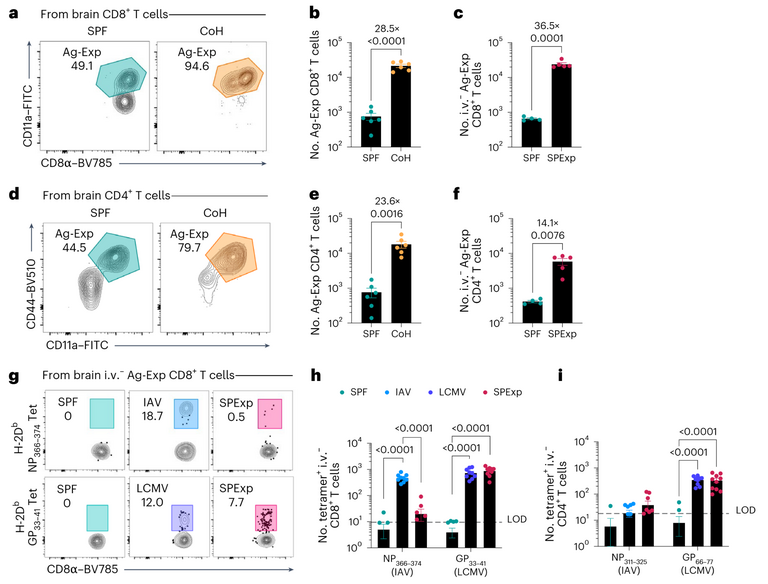We are delighted to share that members of the Harty and Badovinac research labs recently investigated how physiological microbial exposures normalize memory T cell presence in the brain and influence neurological disease outcomes.
Led by Madison Mix, a Medical Scientist Training Program (MSTP) and immunology graduate student, this study shows how realistic microbial exposures induce marked enhancement of memory T cells in the brain tissue of mice. Here, two models of polymicrobial exposures were used to ‘normalize’ the immune systems of specific pathogen-free mice.
Mice with more realistic microbial exposure histories harbored resident and circulating memory T cells that localized to diverse brain regions where interactions with myeloid cells occurred. Following a representative neurological disease model such as a seizure, brain localized-memory T cells were functionally altered. Microbial exposure also induced T cell-dependent changes in seizure duration.
Resulting data not only suggests a potential origin of memory T cells in human brains, but also indicate that physiological microbial exposures can alter the brain’s response to neurological disease states.
This study was published in Nature Immunology. Read the full study here.


